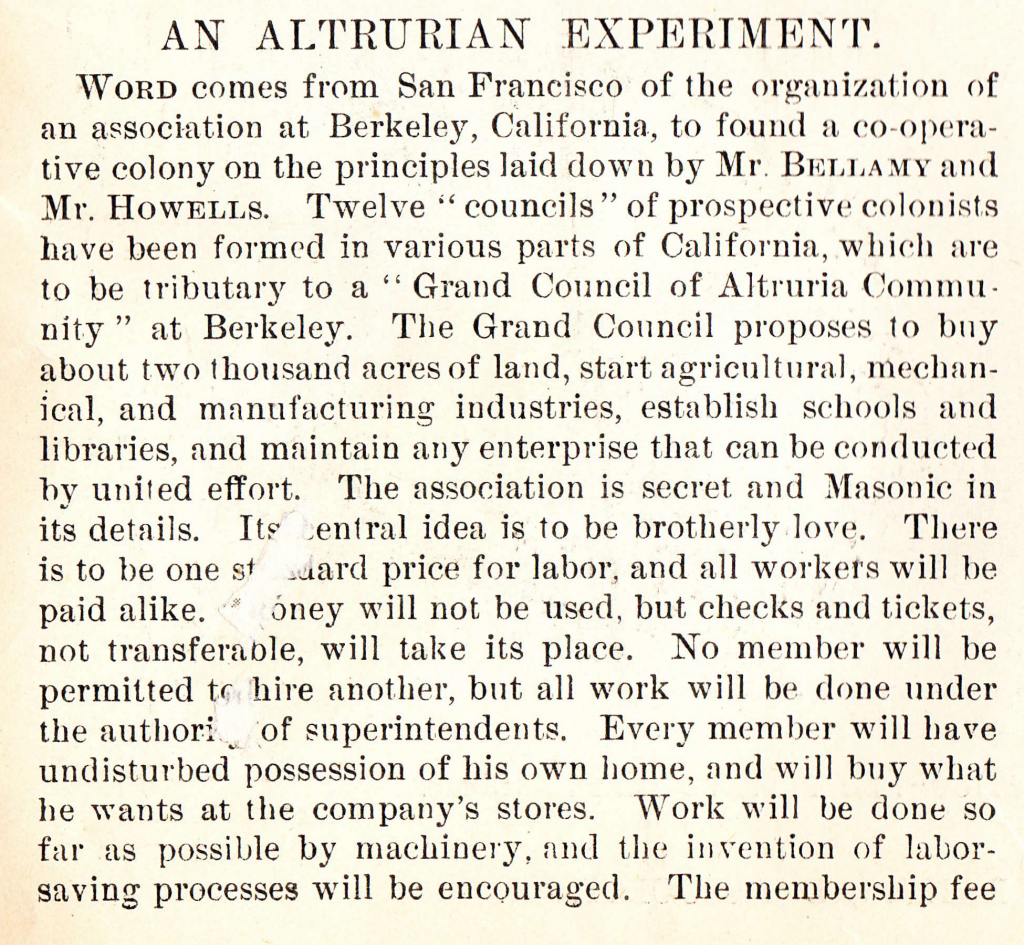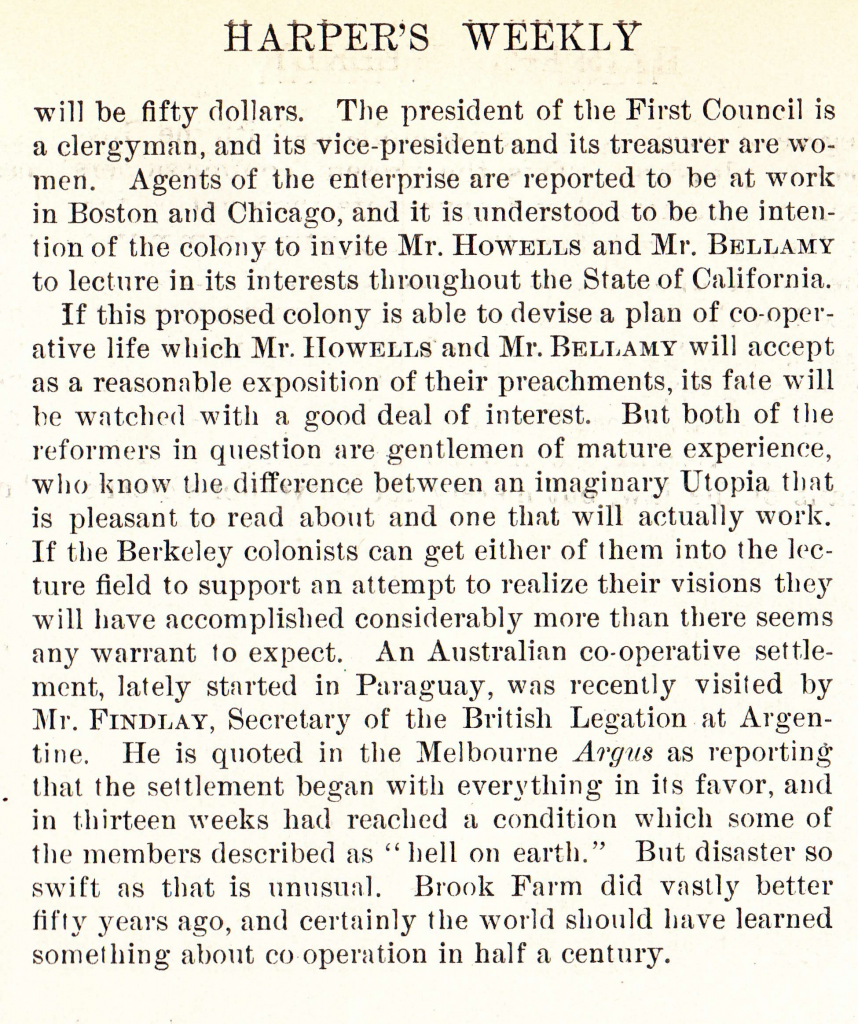Workday Wednesday- Altruria

Altruria, a Utopian colony founded by Edward B. Payne and others in 1894, was an experiment in using the ideals of Christian Socialism and applying them to the workday world of the colony members. Workers were paid the same, whether it was a job as a laundress, a position Edward Payne’s daughter Lynette Payne worked, or farming, building, cooking, etc. Men and women were paid the same for their work, and women held positions within the group organization. No one job was more important than another, and all workers were valued. Those colony members who were too old to work would be paid from the group coffers once the colony was larger and more established.

The $50 entrance fee was “seed money” to get the colony going- literally “seed money” in some respects as the colonists did have large gardens and orchards, and even a store where excess produce was taken for sale to the public.
Many of the Socialists of the day did not believe in the use or acquisition of money, and in Altruria, paper checks and tickets were used for paying workers and purchasing products in the Altruria stores. “Cooperation” was emphasized instead of competition and the aggressive, selfish motives of ‘business as usual’ in pursuit of the almighty dollar, which was abhorred by the Altrurians.
The Altrurians were progressive from a farming and manufacturing perspective, utilizing machines when possible to make their work easier and less time-consuming.
Edward B. Payne was the President of the First Council, and the by-laws required a female Vice President. Rev. Payne still had his pastorate in Berkeley at this time, so did not live full-time at Altruria. He did visit frequently, however, and in addition to his organizational tasks, edited and wrote much of the colony’s newspaper, The Altrurian.
Sadly, the community lasted less than two years. Although members were vetted prior to joining the colony and the group received donations from around the country, there was still internal dissention, and economic woes were significant. The zealous group overextended themselves loan-wise and building progress was not swift enough for the loaned money to begin to turn a profit. Additionally, the Crash of 1893 and resulting national depression affected this enterprise that began in 1894, making it a risky venture from the start. The colonists were able to hold on until 1896 when they ended their “glorious failure” still full of optimism that cooperation could work in a more perfect world.
Notes, Sources, and References:
1) “An Altrurian Experiment” in Harper’s Weekly, 15 Sep 1894, Vol. 38, No. 1969, Page 867. Copy owned by author.
2) William Dean “W.D.” Howells wrote A Traveller from Altruria, a novel which describes the American system of society to a Mr. Homos of Altruria. The book is basically an indictment of capitalism and the consequences of competition, including the class differences it produces. It is also a guide to the cooperative lifestyle of the fictional Altruria. This novel was a best-seller in many countries, especially England and the United States.
3) Edward Bellamy wrote Looking Backward, a time-traveling Utopian novel. In the story, Julian West falls into a deep sleep and wakes up 113 years later, in the year 2000. The US has been converted to a Socialist society, and the book explains these principles and makes an argument for cooperation rather than competition to make a better world. It was the third best-selling novel of its time.
4) See also Friday’s Faces From the Past: Edward Biron Payne.
Please contact us if you would like higher resolution images.
Copyright 2013-2014 by Heritage Ramblings Blog and pmm.
We would love to read your thoughts and comments about this post, and thank you for your time! All comments are moderated, however, due to the high intelligence and persistence of spammers/hackers who really should be putting their smarts to use for the public good instead of spamming our little blog.